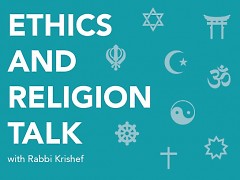The Reverend Colleen Squires, minister at All Souls Community Church of West Michigan, a Unitarian Universalist Congregation, responds:
“Once a year we celebrate Homecoming Sunday. It is normally held the first Sunday after Labor Day. During the summer months many of us travel and are away from church for brief periods of time, Homecoming is a service that is calling us back to our church community. It is an ingathering celebration and is quite meaningful to many of us.”
R. Scot Miller, who writes from an Anabaptist and Quaker Christian perspective, responds:
“Traditionally, the Religious Society of Friends find that each day is holy; thus no set-aside day called Christmas or Easter is necessary. As for national holidays, we do not honor flags or officials, courtrooms or the courts of kinds, and we do not honor nations or individuals, though we pray for and serve every nation and all people. To honor any entity with a holiday or special recognition, whether Fourth of July or the wonderful MLK holiday is to, as Augustine may have said, turn our gaze away from the divine, even just for a moment, which leads us away from faithfulness.”
Rev. Ray Lanning, a retired minister of the Reformed Presbyterian Church of North America, responds:
“Presbyterians of the strictest kind have no special days on their church calendar but one, the weekly Christian Sabbath. But many Presbyterians and most Reformed churches retain the ancient feast days of Christmas, Easter, and Pentecost.
“Christmas is my least favorite. Our modern Christmas has become a month-long, stress-filled frenzy of social events, perceived obligations, and unrealistic expectations. We come to Christmas Day (Dec. 25) in a state of exhaustion, if not disappointment. Thankfully the church I attend insists that all the trappings of the season be left outside the door; our services provide an oasis of peace, where we can feed on God’s Word and be refreshed.
“But my most favorite day is Pentecost, oddly the one most neglected by Christians nowadays. This annual commemoration of the outpouring the Holy Ghost upon the Christian church (Acts 2) reminds us of how abundantly Christ has empowered and equipped us for life and service in this world, while He prepares us for the glory of the world to come.
Fred Stella, the Pracharak (Outreach Minister) for the West Michigan Hindu Temple, responds:
“I would suspect that most Hindus would choose Diwali, the Festival of Lights. This holiday celebrates the return of Lord Rama, his wife Sita and brother Laxman from living in exile to claim his kingdom. Upon closing in on the city of Ayodhya they could see the mountainside aflame with thousands of tiny oil lamps, lit in honor of their homecoming. The story, while having some historical basis, is allegorical; symbolizing our return to a pure state of consciousness. Besides the message I do love what most everyone appreciates about all joyous occasions: the food, religious ceremonies, a feeling of renewal, and wonderful fellowship. Fireworks are often a part of the celebrations as well.
Father Kevin Niehoff, O.P., a Dominican priest who serves as Adjutant Judicial Vicar, Diocese of Grand Rapids, responds:
“My favorite holiday on the liturgical calendar of the Roman Catholic Church is Christmas and the Christmas season. This is so for several reasons. First, I like the Christmas decorations that center around the Christmas crib (nativity scene). I always looked forward to seeing the nativity scene from my home parish church, now lost forever due to a devastating fire. Still, it will always be present in my mind.
“Second, I like the entire Christmas season, which begins on Christmas and ends with evening prayer of the Baptism of the Lord, which occurs in early January after the Feast of the Epiphany. For many Christmas is over on 26 December but for me, Christmas has just begun.
“The spirit of the Christmas season, despite the losses of my maternal grandmother and parents, still fills my heart and mind with joy. This joy is not due to simply celebrating the anniversary of the Birth of Jesus, but also is facilitated by my invitation to Jesus to be reborn within me again each year.
“My least favorite religious holiday or season is Lent. Even though I always enter the penitential nature of this season in preparation for Easter and the resurrection of Christ, I do not like spending this time reflecting on my own faults and failings.”
My response:
My favorite holiday is Sukkot (the Festival of Booths), the Biblical harvest festival after which Thanksgiving is modeled. I love eating in the Sukkah, a temporary hut I build each year as a reminder of both the harvest and of the Israelites dependance on God in the wilderness.
This column answers questions of Ethics and Religion by submitting them to a multi-faith panel of spiritual leaders in the Grand Rapids area. We’d love to hear about the ordinary ethical questions that come up on the course of your day as well as any questions of religion that you’ve wondered about. Tell us how you resolved an ethical dilemma and see how members of the Ethics and Religion Talk panel would have handled the same situation. Please send your questions to [email protected].
The Rapidian, a program of the 501(c)3 nonprofit Community Media Center, relies on the community’s support to help cover the cost of training reporters and publishing content.
We need your help.
If each of our readers and content creators who values this community platform help support its creation and maintenance, The Rapidian can continue to educate and facilitate a conversation around issues for years to come.
Please support The Rapidian and make a contribution today.
